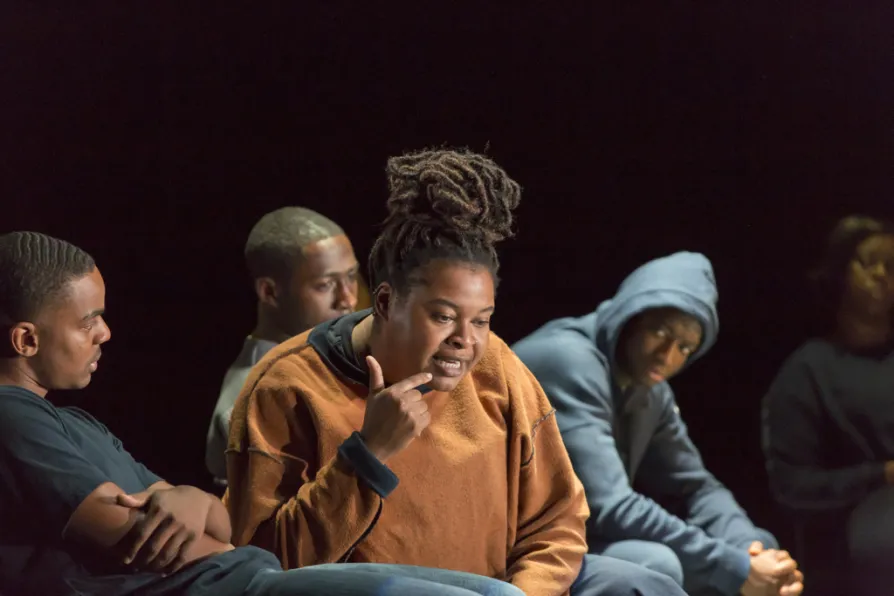MATTHEW HAWKINS contrasts the sinister enchantments of an AI infused interactive exhibition with the intimacies disclosed by two real artists

 Bearing witness: ear for eye
[Stephen Cumminskey]
Bearing witness: ear for eye
[Stephen Cumminskey]
ear for eye
Royal Court Theatre, London
BLACK is so much more than a colour. It’s a brutal truth that, if your skin is black, the world responds to you with hostility.
And in her new play, ear for eye's writer and director debbie tucker green, in brilliant rainbow hues, shares what it’s like to live within a black skin and to daily face entrenched assumptions that go way beyond prejudice from time immemorial.
A superbly acted ensemble piece, it has all the verbal pyrotechnics and structural precision of a long and vivid poem. Its three-part narrative, more telling in its abandonment of chronological progression, reveals the depth of experience in the moment.

MARY CONWAY is blown away by a flawless production of Lynn Nottage’s exquisite tragedy

MARY CONWAY revels in the Irish American language and dense melancholy of O’Neill’s last and little-known play

MARY CONWAY applauds the revival of a tense, and extremely funny, study of men, money and playing cards











